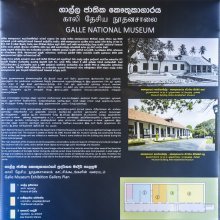Angu, Aṅgu, Amgu: 5 definitions
Introduction:
Angu means something in Hinduism, Sanskrit. If you want to know the exact meaning, history, etymology or English translation of this term then check out the descriptions on this page. Add your comment or reference to a book if you want to contribute to this summary article.
Images (photo gallery)
Languages of India and abroad
Sanskrit dictionary
Source: DDSA: The practical Sanskrit-English dictionaryAṅgu (अङ्गु).—[aṅg-un] A hand (occurring in aṅguṣṭha q. v.).
Derivable forms: aṅguḥ (अङ्गुः).
Source: Cologne Digital Sanskrit Dictionaries: Monier-Williams Sanskrit-English Dictionary1) Aṅgu (अङ्गु):—[from aṅga] m. or f. (?) a limb of the body, [cf. Lexicographers, esp. such as amarasiṃha, halāyudha, hemacandra, etc.]
2) [v.s. ...] a bird, [cf. Lexicographers, esp. such as amarasiṃha, halāyudha, hemacandra, etc.]
Source: Cologne Digital Sanskrit Dictionaries: Goldstücker Sanskrit-English DictionaryAṅgu (अङ्गु):—See the E. of aṅguṣṭha.
[Sanskrit to German]
Sanskrit, also spelled संस्कृतम् (saṃskṛtam), is an ancient language of India commonly seen as the grandmother of the Indo-European language family (even English!). Closely allied with Prakrit and Pali, Sanskrit is more exhaustive in both grammar and terms and has the most extensive collection of literature in the world, greatly surpassing its sister-languages Greek and Latin.
Kannada-English dictionary
Source: Alar: Kannada-English corpusAṃgu (ಅಂಗು):—
1) [noun] an undivulged fact, purpose, method etc.; a secret.
2) [noun] a small, sensitive, erectile organ at the upper end of the vulva; a homologue of the penis in the female; clitoris.
--- OR ---
Aṃgu (ಅಂಗು):—[noun] a kind of sweet dish.
--- OR ---
Aṃgu (ಅಂಗು):—[noun] a debt of gratitude; obligation.
Kannada is a Dravidian language (as opposed to the Indo-European language family) mainly spoken in the southwestern region of India.
See also (Relevant definitions)
Starts with (+190): Amgua, Amgubbhava, Amgudi, Amgulejjaka, Amguleyaga, Amguleyaya, Amgulia, Amguligami, Amgulijjaga, Amgulijjaka, Amgulikriye, Amgulimudre, Amgulimudrike, Amgulimul, Amgulini, Amgulipadi, Amgulipraharana, Amguliyaga, Amguliyaya, Amgulmullu.
Ends with (+568): Aakasa garudan kizhangu, Aampal kizhangu, Abhraangu, Abhrangu, Adakehamgu, Adamgu, Adapathiyan kizhangu, Adigolamgu, Agangu, Ajjamamgu, Akakkalanku, Alatakkilanku, Alavanku, Allvalli-kizhangu, Alukarciranku, Amirtankalanku, Amukkirakkilangu, Amukkurak-kizhangu, Amukran-kizhangu, Anaicciranku.
Full-text (+8): Angushtha, Amke, Ankanku, Ankatiyinkati, Angu lako, Ankurri, Padanguliyaka, Ankanke, Pattranguli, Ankittu, Ankutiyinkuti, Ottanku, Angulatika, Takkanku, Arai-matiirumpu, A-vitam, Viravaram, Ankuttai, Pangu, Angula.
Relevant text
Search found 5 books and stories containing Angu, Aṅgu, Amgu, Aṃgu; (plurals include: Angus, Aṅgus, Amgus, Aṃgus). You can also click to the full overview containing English textual excerpts. Below are direct links for the most relevant articles:
Angus Wilson’s Protagonists < [April – June, 1989]
Shiv K. Kumar and Anita Desai: New Dimension to Indian English Fiction < [January – March, 1984]
Manusmriti with the Commentary of Medhatithi (by Ganganatha Jha)
Verse 2.59 < [Section XIII - Initiation (upanayana)]
Sivaprakasam (Study in Bondage and Liberation) (by N. Veerappan)
Expiation of sins < [Chapter 2 - Bondage]
Divine Help of Pancaksara < [Chapter 6 - Means to Release]
Three forms of deeds < [Chapter 2 - Bondage]
Shakti and Shakta (by John Woodroffe)
Chapter XXVII - Pañcatattva (the Secret Ritual) < [Section 3 - Ritual]
